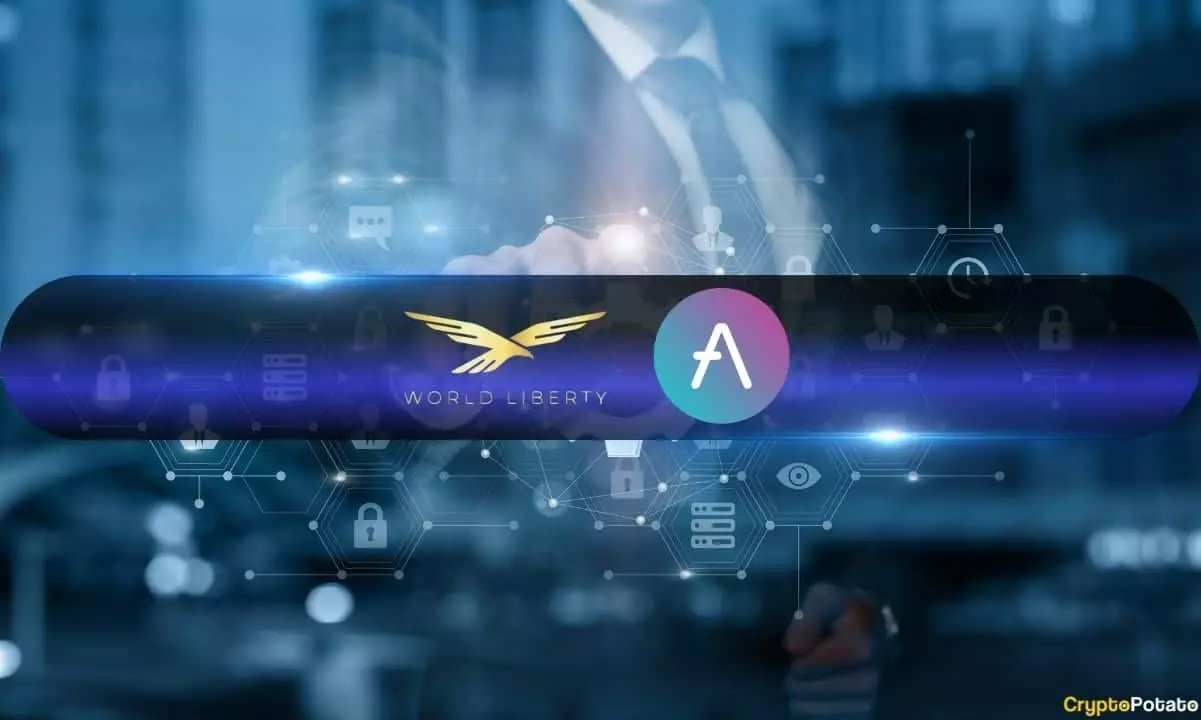World Liberty Financial (WLF), an ambitious cryptocurrency venture spearheaded by former President Donald Trump, has recently submitted a proposal to the Aave governance forum, aiming to utilize Aave’s decentralized finance (DeFi) platform for its operations. This proposed collaboration represents an intriguing convergence of traditional political figureheads and the rapidly evolving DeFi landscape, raising critical questions about governance, tokenomics, and broader market implications.
At its core, WLF’s ambition is to integrate its services into Aave, leveraging the latter’s robust infrastructure for transaction facilitation and liquidity. By proposing a model where AaveDAO receives 20% of all protocol fees, alongside a share of WLFI, the governance token for WLF, the project is not merely seeking functionality but is also offering a revenue-sharing model that could potentially attract participation from the DeFi community. Users engaging with WLF’s liquidity pools are incentivized through WLFI rewards, adding a layer of gamification to the financial system.
However, a significant layer of complexity is introduced through the proposed handling of WLFI tokens. The project categorizes these tokens as non-transferable, presenting a challenge for AaveDAO regarding their management and distribution. This conundrum raises valid concerns about how decentralized governance can operate effectively within the constraints of such a stipulation.
WLF distinguishes itself from existing DeFi platforms by promising a user-friendly experience. By accepting assets like Ethereum, Wrapped Bitcoin, and leading stablecoins, the initiative aims to attract a blend of traditional and new-age investors. The use of a trustless smart contract for revenue sharing adds an element of security and assurance for all parties involved, potentially bridging gaps often found in financial interactions.
This drive to create a stable liquidity environment for ETH and WBTC could serve dual purposes, fostering both institutional investment and mass market adoption. By promoting accessibility—an aim WLF has articulated, especially with intentions to eventually include a broader demographic—they are actively targeting both knowledgeable investors and novice participants.
The proposal from WLF will be scrutinized by the AaveDAO community, tasked with voting on the prospect of Trump’s DeFi offering being built atop its platform. This paves the way for substantial engagement from token holders, adding an interesting layer of political strategy to the decision-making process. The inclusion of compliance with U.S. Securities and Exchange Commission (SEC) regulations illustrates both an intention to navigate legal waters prudently and to reveal the project’s future aspirations of inclusivity.
Ultimately, the fate of this collaboration underscores a pivotal moment in the intersection of financial technology and political brand power. Should AaveDAO consent to WLF’s vision, it could reshape the landscape of engaging with DeFi, potentially marking a shift in public perception of cryptocurrencies and alternative financial opportunities in a politically charged environment.
World Liberty Financial’s foray into DeFi, backed by prominent political figures like Donald Trump, represents a novel intersection of finance and traditional political motifs. The success of this initiative hinges on the resolution of existing challenges, including governance dynamics and token management. As discussions unfold within AaveDAO, the outcome could herald a new era of accessibility and participation in the decentralized finance space, simultaneously igniting debates over the influence of political figures in financial systems. The fusion of political ambition and technological advancement may result in transformative outcomes for both industries.















